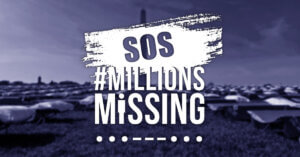In late 2017, Australia’s National Health and Medical Research Council (NHMRC) – the Australian equivalent of the US National Institutes of Health – established an ME/CFS Advisory Committee to advise NHMRC’s CEO, Professor Anne Kelso, on current needs for research and clinical guidance for ME/CFS in Australia. The committee sat from December 2017 to April 2019.
The final report has been sent to Professor Kelso for her to consider its recommendations. We are waiting to hear her response.
The establishment of this committee was significant for Australia. It not only represented a major step forward in terms of recognition of the disease by our government, but was also the first time that patient advocates had been included in government processes. Two patient advocates sat on the committee: Penelope McMillan and myself, Simone Eyssens.
The committee also represented a significant achievement for ME/CFS advocacy in Australia as it was the culmination of efforts from several organisations and individuals, including ME/CFS South Australia (which wrote the initial submission for a targeted call for research, which led to the establishment of the committee), as well as Emerge Australia, ME Advocacy Network Australia, and others.
Whilst the establishment of the committee was a step forward, it didn’t mean that we were able to release ourselves from the shackles of graded exercise therapy (GET). The committee included some members who use GET in their clinical or research work: Professor Andrew Lloyd, Dr Kathy Rowe and Dr Suzanne Broadbent.
However, NHMRC recognised the need for the ME/CFS community to be heard, and so agreed to undertake a public consultation process as part of this committee’s work, which is something NHMRC usually only does for draft clinical guidelines, not for advisory committees. More than 250 submissions were received, which is amongst the most which NHMRC has ever received during a public consultation process. It is a testament both to community concern and engagement, and the efforts of advocates who ran read alongs and wrote summaries to help patients prepare submissions, that so many submissions were received. Thank you to everyone who wrote a submission. The submissions will be published on NHMRC’s website in the near future (apart from those whose authors asked for theirs not to be made public).
The final report is not perfect but, given the makeup of the committee, it was never going to be exactly what we wanted (especially on the topic of GET). However, the recommendations are forward-looking and, if implemented, would represent significant progress for Australians with ME/CFS. Encouragingly, two of the committee’s recommendations have already been implemented by the Department of Health (based on the draft report):
- Health economics study.
This grant was announced in February, and applications closed in April. We are currently waiting to hear the outcome of the grant panel’s review process. - $3m targeted call for research (TCR).
TCRs are very similar to the National Institutes of Health’s Request for Applications, in that they are a grant for a specific topic area, and are designed to stimulate the research field. This was announced in March. The next step in this process would be the announcement of the formation of a TCR committee to formulate the specific focus (within ME/CFS research) for this TCR. - A third recommendation from the committee (for the establishment of an ME/CFS biobank) has been implemented by the Mason Foundation (a private Australian foundation which funds ME/CFS and Alzheimer’s research). Mason Foundation began a lengthy process to consider the viability of a biobank prior to the establishment of NHMRC’s Advisory Committee, and this year announced a grant to establish one. Applications for the grant closed on 30 April, and we anticipate an announcement any day.

[maxbutton id=”23″ url=” https://www.nhmrc.gov.au/file/14332/download?token=8q3RRIz6″ text=”Read the Report” ]





